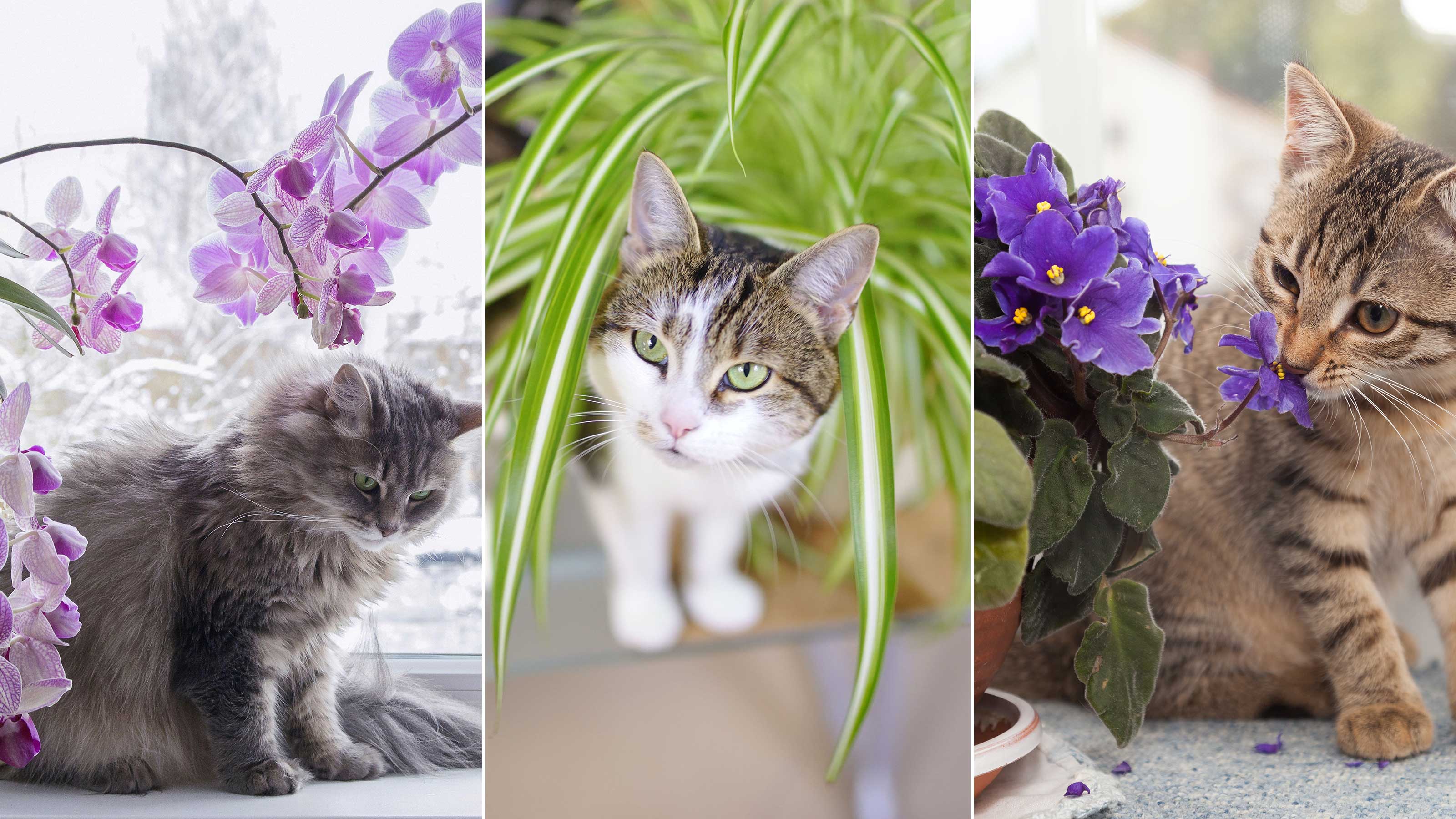
Choosing houseplants that are not toxic to cats is important if you have one of your own. These curious pets are prone to chew on foliage, and the last thing you want is for yours to get sick as a result – or worse.
For advice, we chatted with plant and pet-care experts, who recommended some top choices that are safe for these adorable animals. Below, they also discuss the dangers, symptoms to look out for, and what to do if you think your cat has nibbled something it shouldn't have.
So, if you're looking to create a botanical haven for both you and your kitty, avoid plants that are poisonous to cats and go for these pet-friendly options instead.
10 houseplants that are not toxic to cats and will elevate your surroundings
It may be tempting to fill your home with the best indoor plants with wild abandon. But if you have a cat, you'll need to think carefully about your choices.
Veterinary writer Dr. Sabrina Kong says, "The dangers of toxic plants can be quite serious. When a cat ingests a toxic plant, symptoms can vary widely. Mild symptoms may include drooling, vomiting, and diarrhea, while more severe reactions can lead to lethargy, difficulty breathing, tremors, and even kidney or liver failure. In worst-case scenarios, ingestion of highly toxic plants can be fatal if not treated promptly."
Common signs of toxicity also include lack of appetite, seizures, and abnormal heart rhythms, Sabrina lists. "If you suspect your cat has ingested a toxic plant, seek veterinary care immediately," she advises. "Bring a plant sample to help the vet identify the toxin and provide the appropriate treatment."
1. Ponytail palm
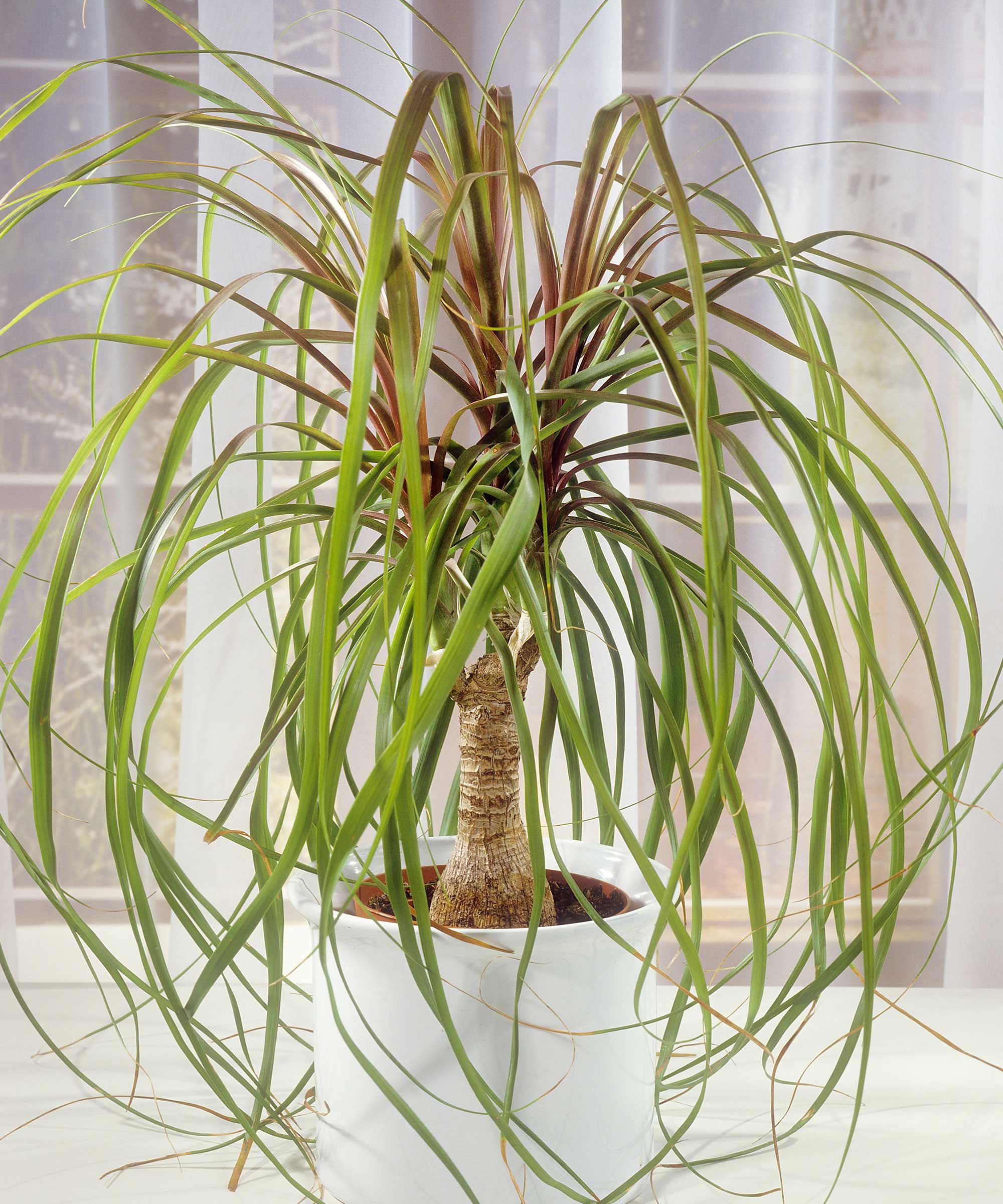
Plant expert Autumn Janus recommends the ponytail palm (available from Perfect Plants Nursery). Also known as Beaucarnea recurvata, she says this is a unique and low-maintenance houseplant – and it's safe for your cat. We love its elegantly arching, ribbon-like leaves.
"To care for this plant, it's important to place it in a well-draining pot and allow the soil to dry out between waterings to prevent root rot," Autumn advises. It thrives in bright, indirect light but can tolerate periods of low light, she adds.
2. Moth orchid
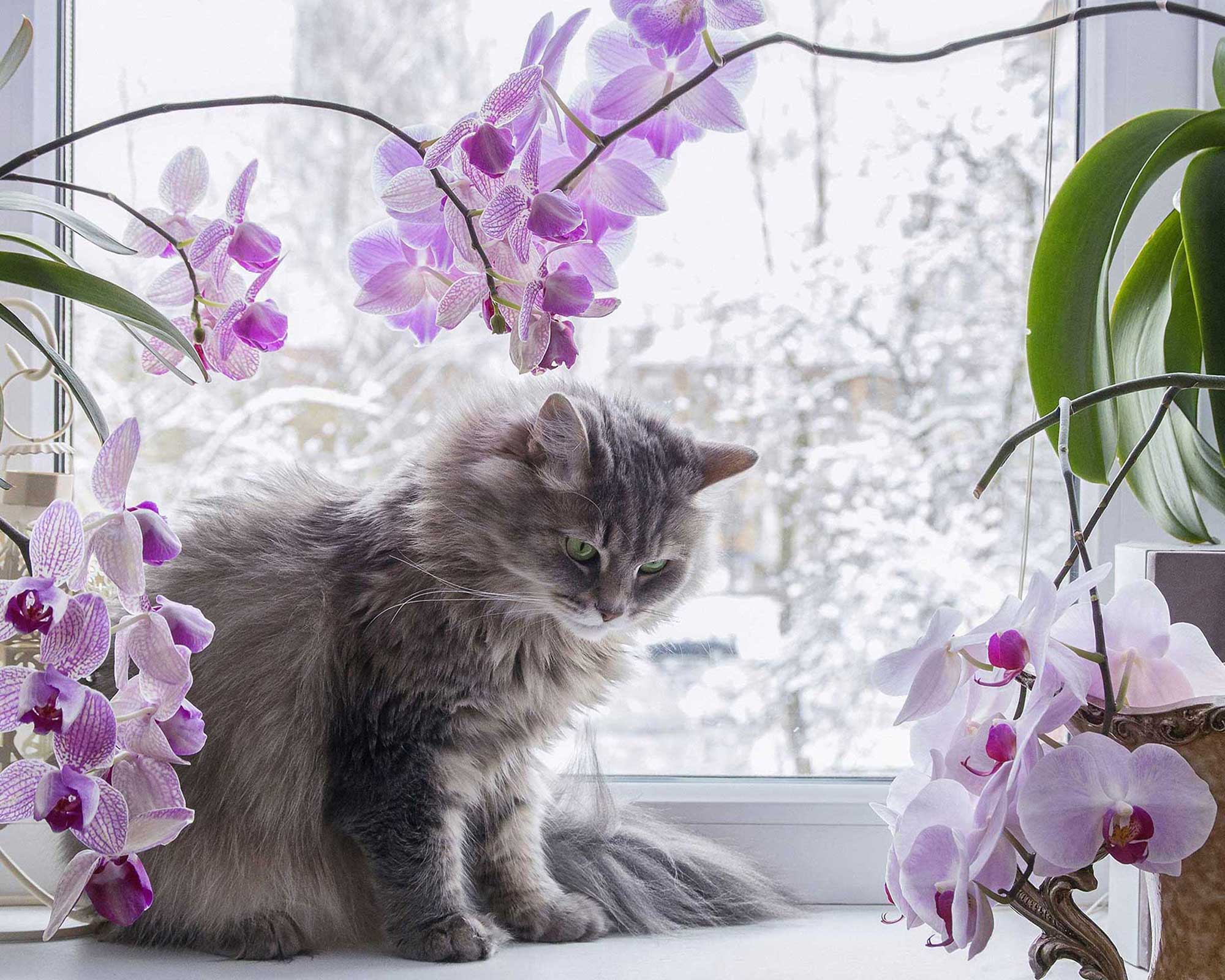
Anastasia Borisevich, a plant expert at Plantum, recommends moth orchids for a cat-friendly home. "This easy epiphyte features showy, bright-colored, and long-lasting flowers. One of the most popular houseplants, it’s perfect for a novice gardener with fluffies," she says.
Use soft, filtered, and lukewarm water for watering orchids, she continues, and avoid getting any water in the leaf rosettes. "Don't allow the substrate to dry out too much between waterings." Anastasia also recommends misting your orchids daily to maintain high humidity. "Provide your plants with bright, filtered light," she adds.
You can shop for a range of moth orchids from Lively Root.
3. Boston fern
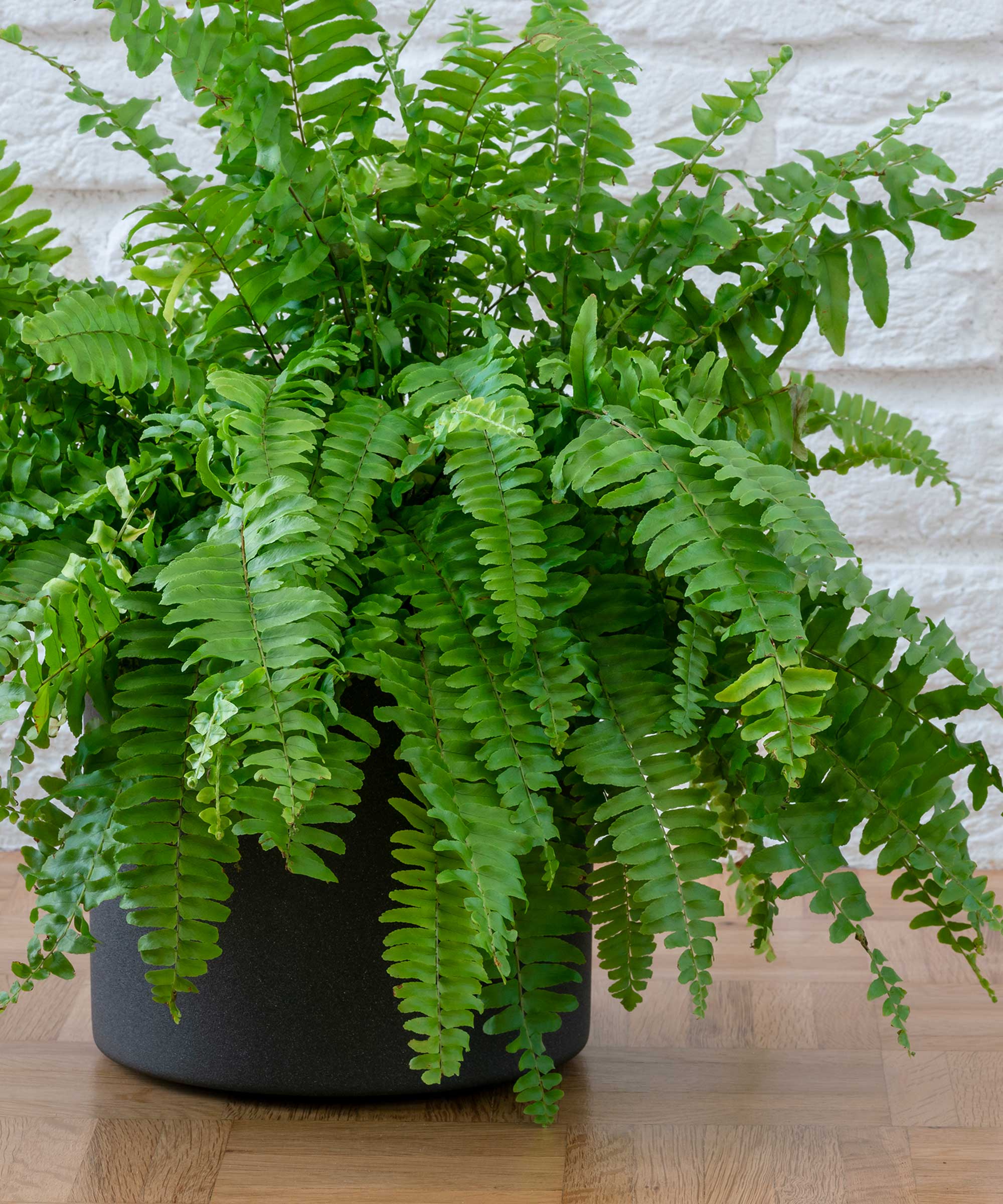
Learning how to care for ferns is well worth it for the lush look they bring to a space. And if you have a cat, the Boston fern is a great option, as suggested by Sabrina and Mary Helen Horn, a pet nutrition expert and president and executive director at ZIWI®.
Also known as Nephrolepis exaltata, these plants thrive in high humidity and indirect light and should be kept in moist soil, not waterlogged, Sabrina says. Mary recommends misting the leaves regularly.
Boston ferns are available to shop from Lively Root, and look fantastic when hanging from up high.
4. Areca palm
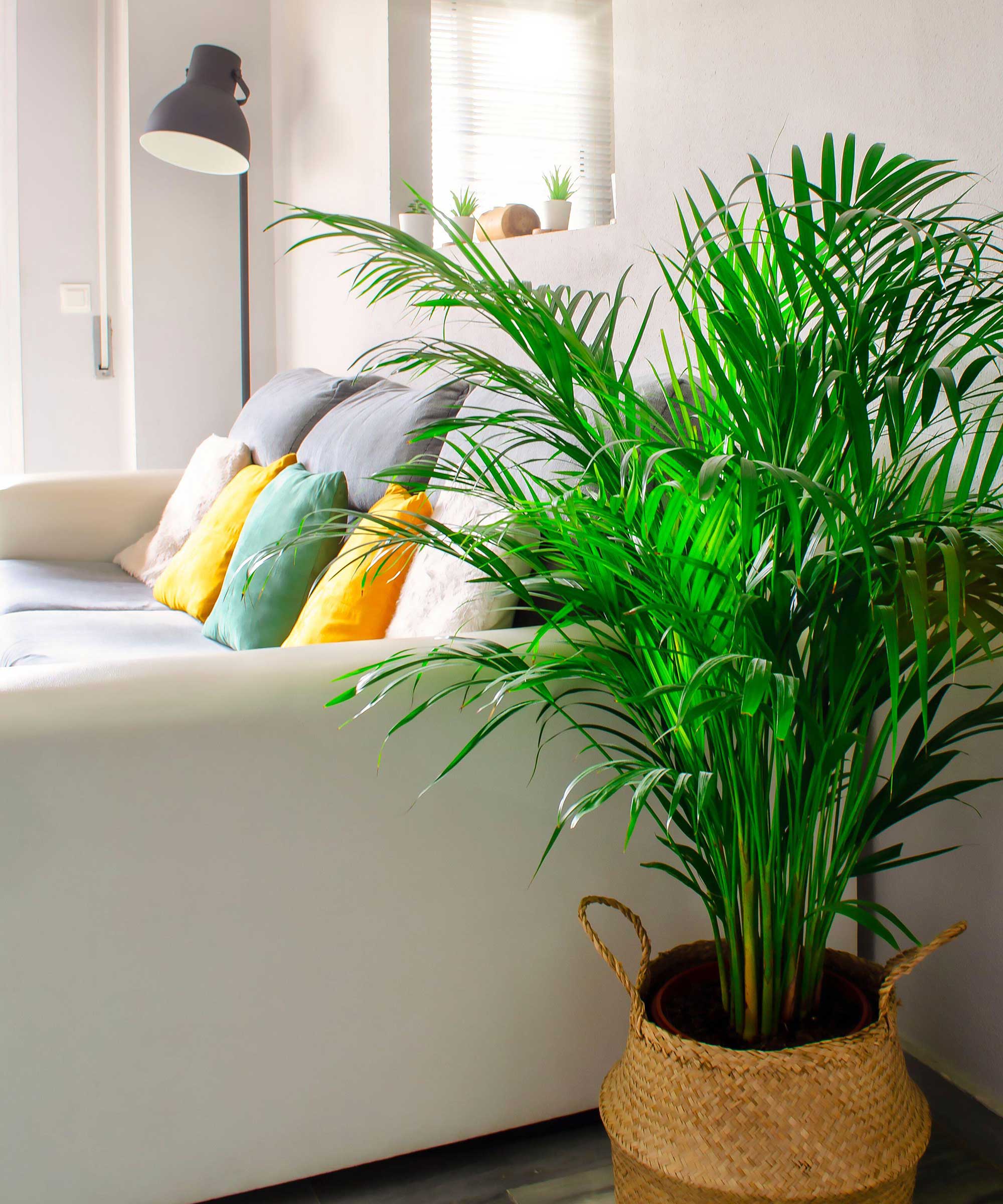
Sabrina recommends the areca palm (Dypsis lutescens) as another suitable option. "It prefers bright, indirect light and well-draining soil," she says. Mary adds that they should be watered when the top inch of soil is dry, and suggests adding fertilizer occasionally during the growing season.
These palms can grow to be quite tall houseplants, Mary adds, making them a striking focal point in a room without posing a risk to your cat. You can shop for areca palms from Lively Root.
5. Calathea
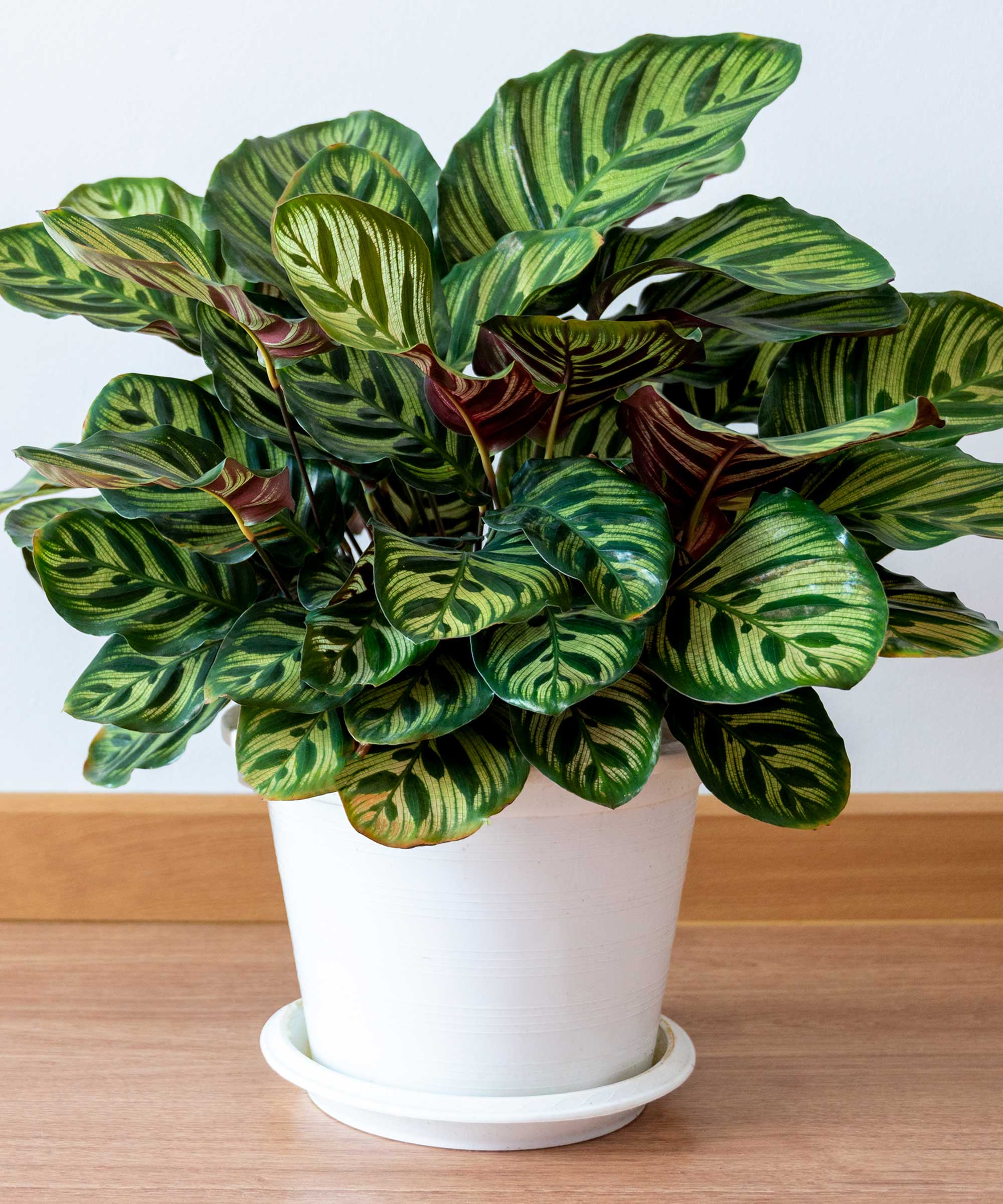
Dr. Matthew Murphy, lead veterinarian and managing partner at CityVet, says, "With its beautifully patterned leaves, the calathea comes in many varieties. Most are non-toxic to cats and prefer medium to low indirect light."
These vibrant plants also like high humidity and consistently moist soil. Try the pet-safe "Cathedral Windows" calathea from Lively Root, which offers striking hues of green and purple.
6. Variegated spider plant
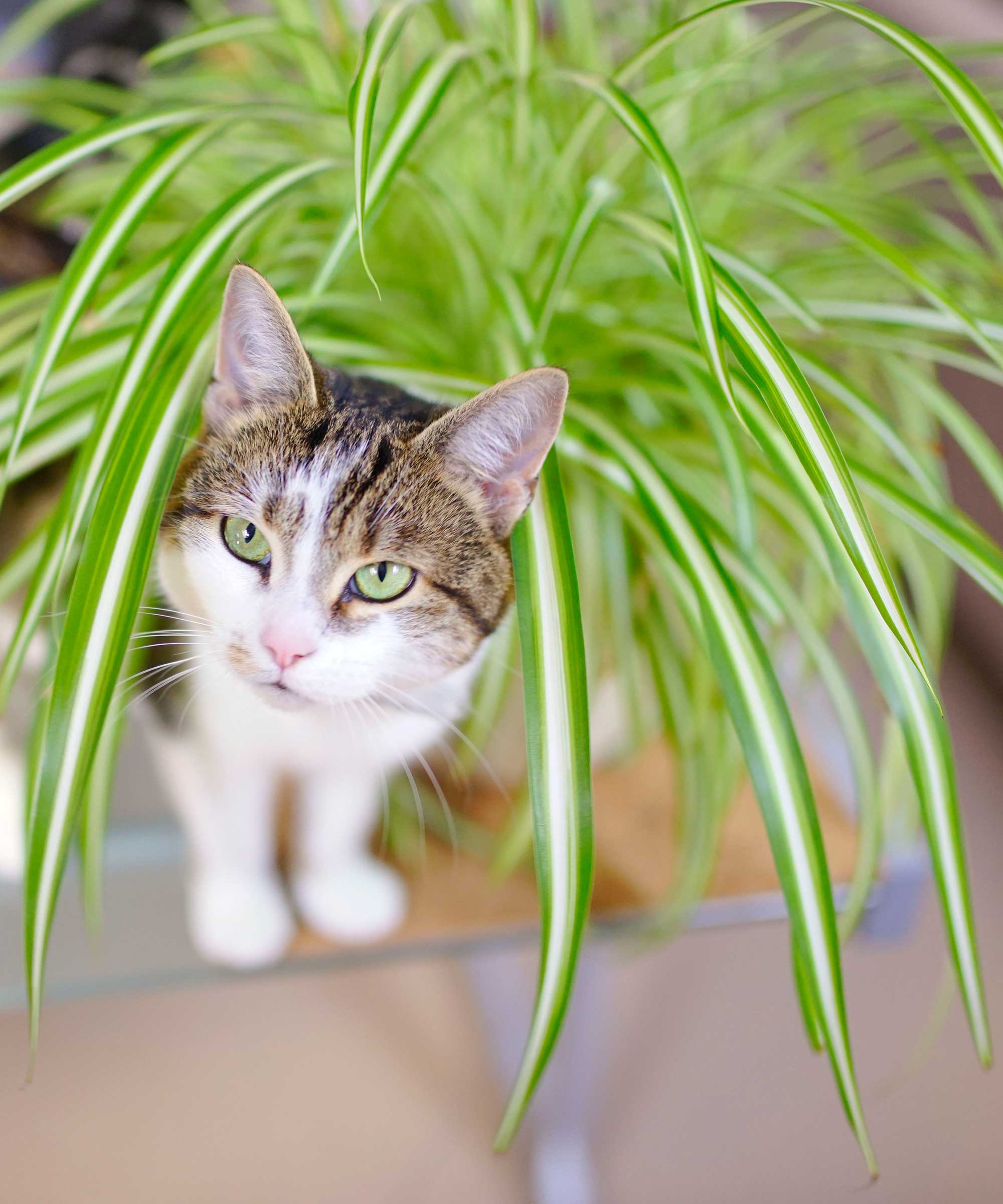
Learning how to care for a spider plant is super straightforward, and thankfully they are considered safe for both dogs and cats.
Autumn particularly recommends the variegated spider plant, available at Perfect Plants Nursery. To keep this plant healthy, place it in a well-lit spot, she says. "Water the plant thoroughly when the top inch of soil is dry, but be careful not to overwater as it can lead to root rot.
"Spider plants are known for producing long, arching stems with baby offsets or 'spiderettes' that can be propagated to create new plants," she adds.
7. African violet
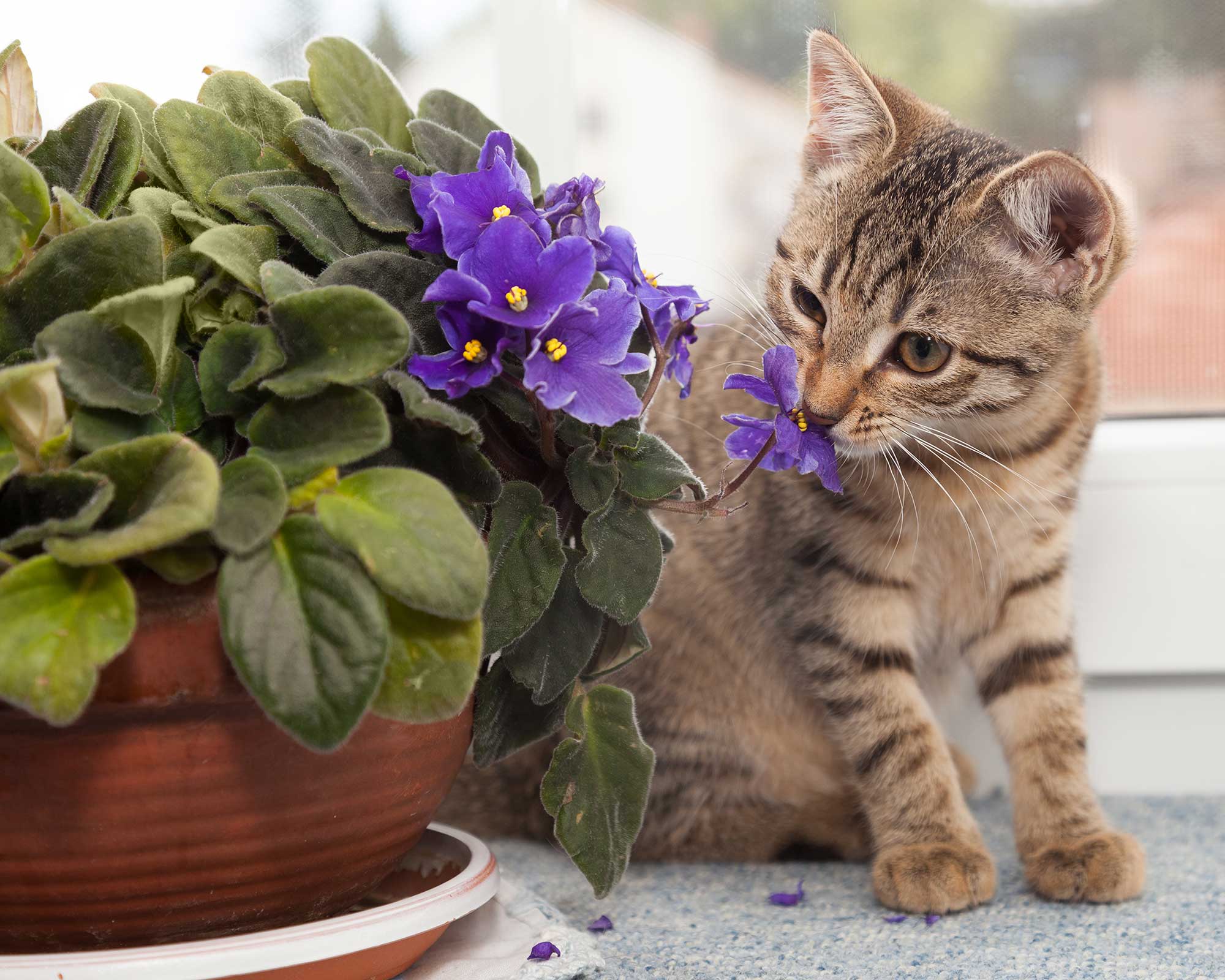
According to the American Society for the Prevention of Cruelty to Animals (ASPCA), African violets are non-toxic to cats. This is great news if, like us, you're a fan of these flowering houseplants which are perfect for brightening small spaces.
Keep them warm and provide plenty of bright but indirect light each day. When you go to water them, avoid splashing the leaves as this can damage them. African violets are available from Lively Root.
8. Money plant
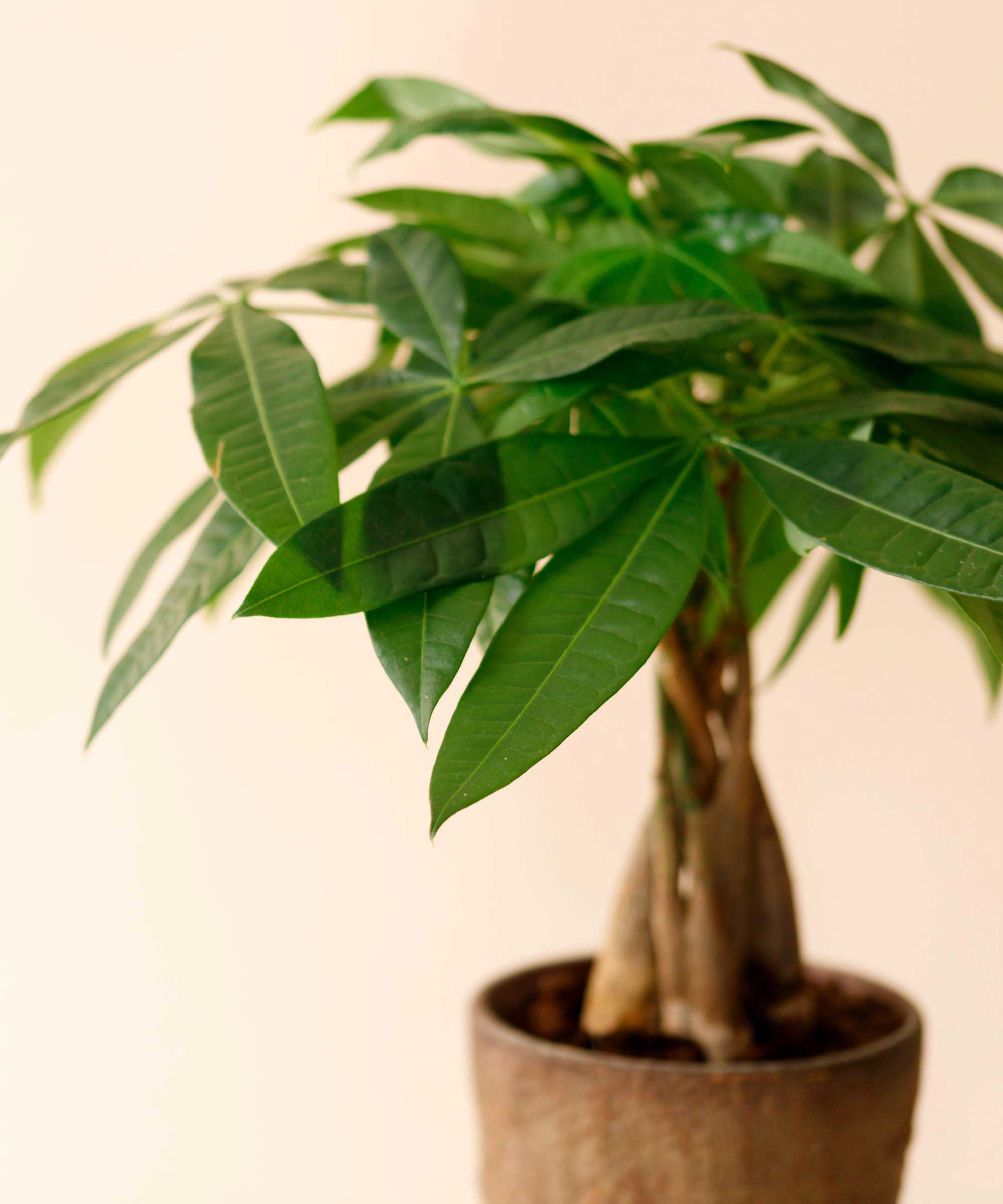
Dr. Matthew Murphy also recommends money trees (Pachira aquatica) as houseplants that are not toxic to cats. Plus, these braided wonders are said to bring good luck and prosperity, he adds.
Caring for a money tree requires little effort. Avoid overwatering and exposing it to extreme temperatures, which can cause harm. "It thrives in medium to bright indirect light," Matthew notes. Money trees are available to buy from Lively Root.
Note: Although money trees are non-toxic to cats, ingestion may cause stomach upset.
9. Burro's tail
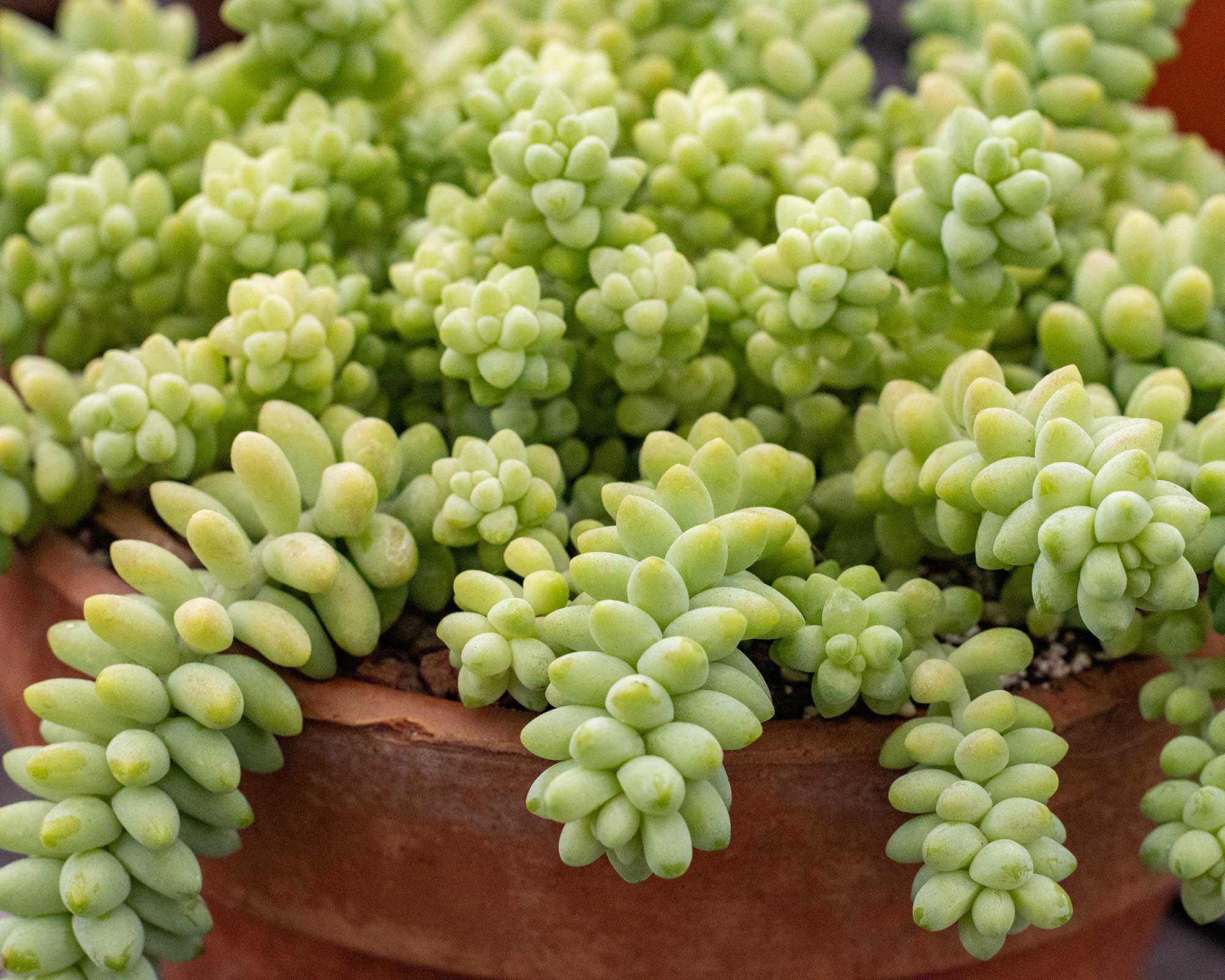
Sedum morganianum or burro's tail is an adorable succulent that's safe for cats, according to the ASPCA. Plant it in the best soil for succulents and avoid waterlogging to help it flourish. It's a slow grower, so great for compact spaces – try placing it on the edge of a sunny desk to brighten your work days.
What's more, this beauty is easy to propagate from cuttings of its fleshy, trailing stems, rewarding you with new plants for free.
10. Cat grass
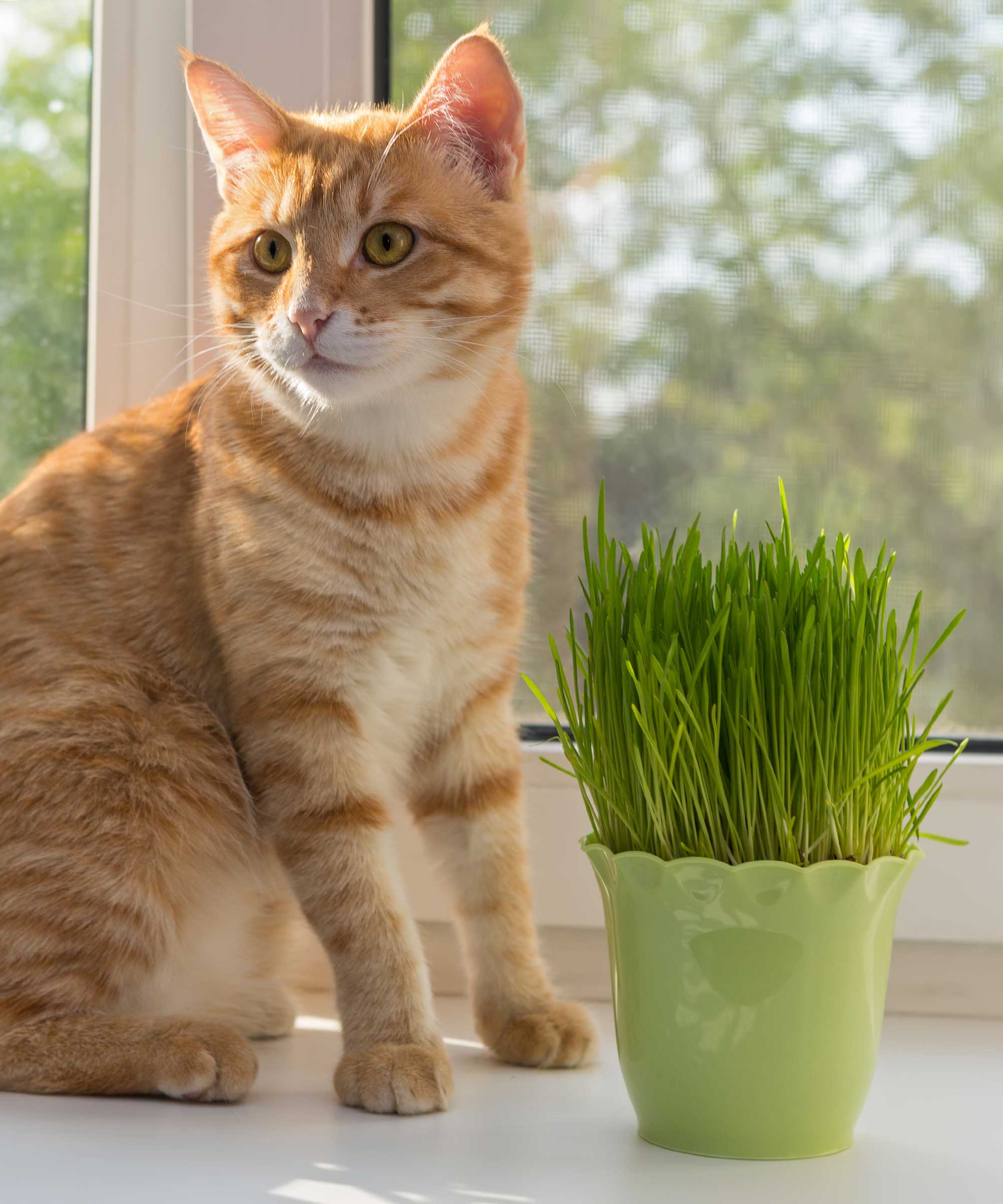
Anastasia says, "If you have a cat and have never grown cat grass, you should definitely give it a try." It provides a healthy distraction from chewing on leaves of other houseplants, she explains.
Usually, the term "cat grass" refers to seedlings of grains such as oat or wheat or Dactylis glomerata, she continues. "Unlike a large share of other plants, they’re vitamin-rich, cheap, and most importantly, perfectly fine for a cat to eat. Many pet stores sell sprouted, ready-to-eat grass, but it’s fairly easy to grow it at home if you choose to do so."
Autumn recommends the organic cat grass kit from Perfect Plants Nursery – "a simple and fun way to provide a healthy snack for your feline friend." Simply plant the seeds in a pot with well-draining soil and place it in a location that receives bright, indirect light, she instructs. "Water the soil regularly to keep it moist but not waterlogged. The grass will begin to sprout in a few days and can be ready for your cat to enjoy in one to two weeks."
What to shop
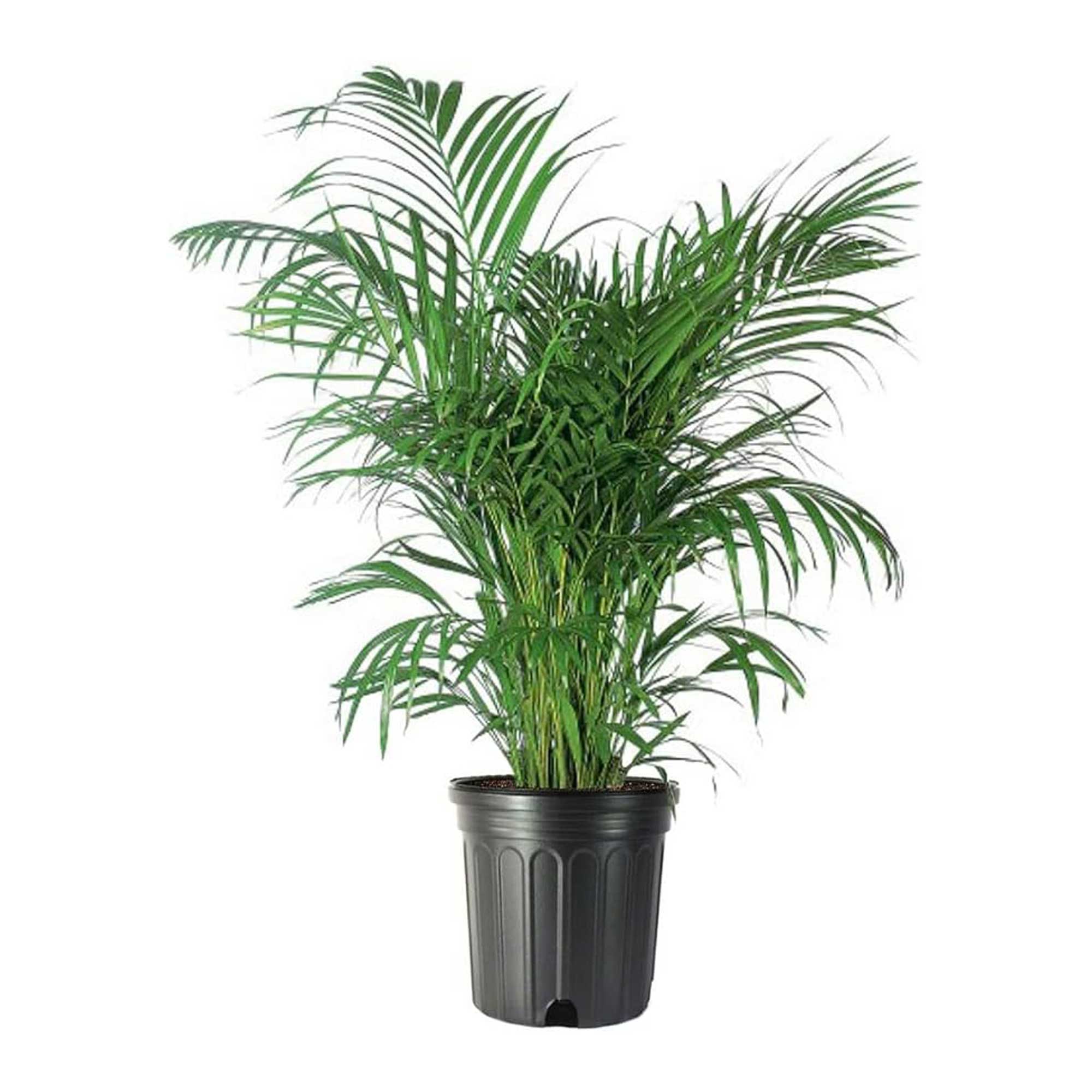
Price: $41.63
This striking houseplant from American Plant Exchange comes in a 10-inch pot, although there is also a 6-inch version available.
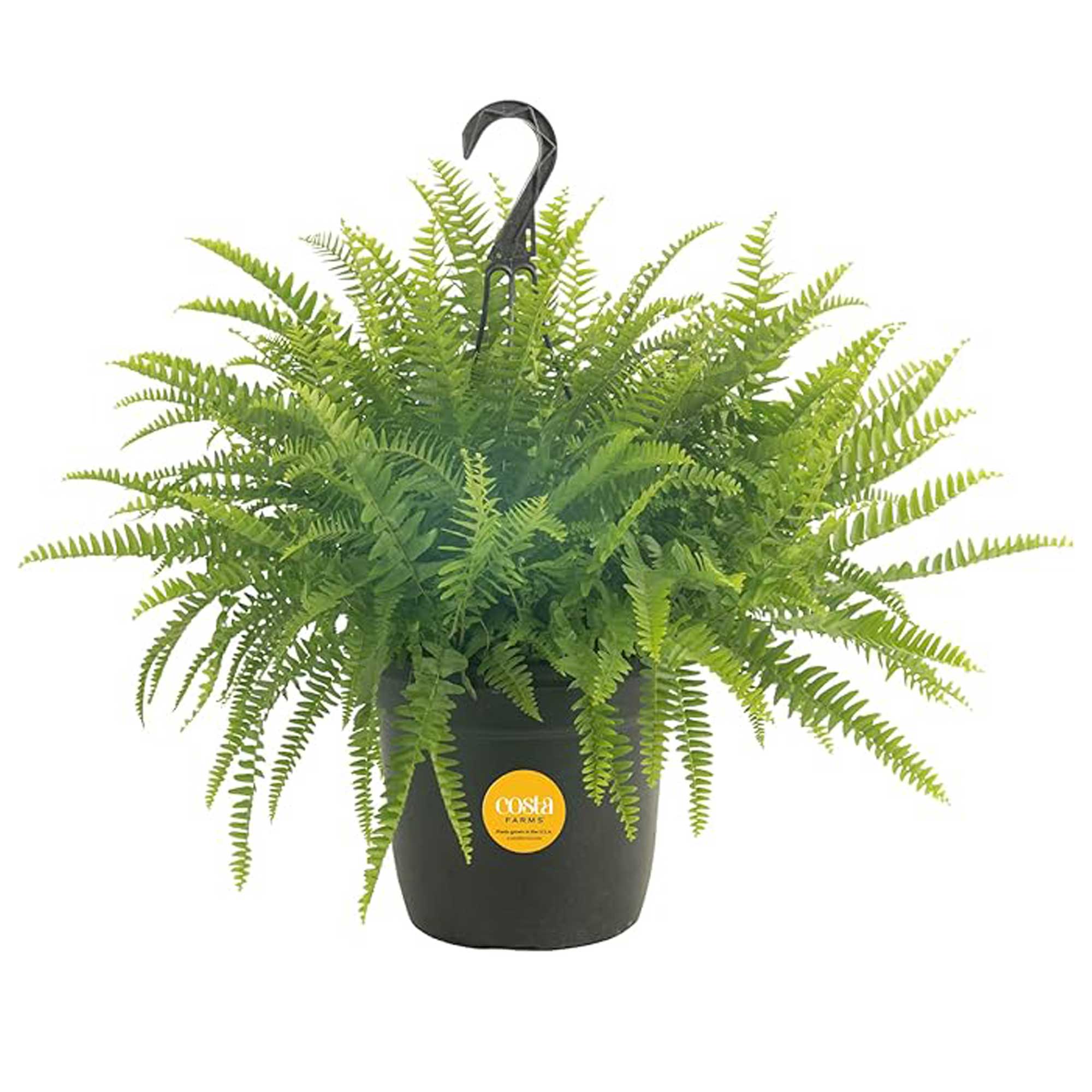
Price: $22.30
A favorite houseplant of many, this cat-friendly Boston fern from Costa Farms looks fabulous with its luscious green fronds.
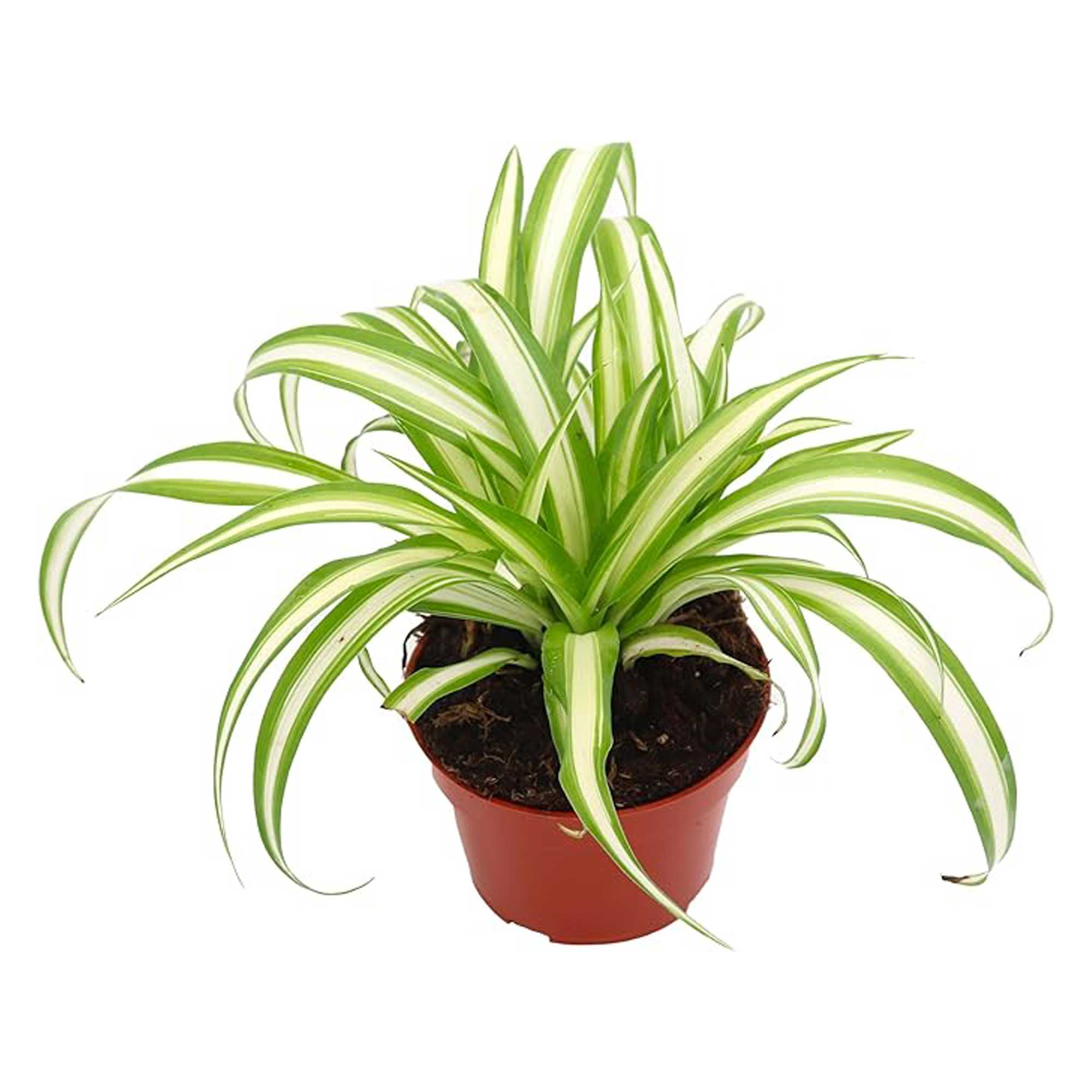
Price: $15.99
This California Tropicals variegated spider plant makes a super cute addition to any home. And, they're an easy plant to propagate.
FAQs
What makes plants toxic to cats?
Dr. Sam Meisler, veterinarian and founder of PetWellClinic, says, "Plants can be toxic to cats because of certain compounds that can cause a range of bad reactions."
For instance, alkaloids can mess with a cat's nervous system and be fatal if ingested, he says. They are found in many plants, including lilies and daffodils. Glycosides, found in foxgloves for instance, can affect the heart and other organs. Another example is calcium oxalate crystals, he continues. "These crystals, found in peace lilies and pothos, can cause severe oral irritation, excessive drooling, and difficulty swallowing.
"Some plants, such as peppermint and eucalyptus, contain essential oils that can cause gastrointestinal upset and central nervous system depression," he continues. Be careful when picking out Christmas plants for your home, too. Sam says poinsettias contain phenolic compounds, which can cause mild to moderate digestive upset.
What should cat owners look for when shopping for plants?
Sabrina says, "Cat owners should always verify the toxicity of plants before purchasing. Many plant care tags do not include this information, so doing your own research is crucial." Mary recommends the ASPCA website as a reliable resource for this. Here, you can find a list of toxic and non-toxic plants to cats.
Sabrina continues: "If you’re unsure about their safety, especially if you have a curious cat, placing plants out of reach is a good practice. Consider using hanging planters or elevated plant stands." We love this Mkono macrame plant hanger from Amazon for a boho-chic vibe.
It's important to note that even non-toxic plants can cause stomach upset if your cat munches on them excessively, as Dr. Matthew Murphy points out. "Scratching posts, catnip toys, and climbing structures can help deter your cat from nibbling on plants," he advises. He also suggests using a bitter apple spray to deter your cat from chewing on leaves. We like the look of this apple spray from Bodhi Dog at Amazon, which can be used for dogs, too.







